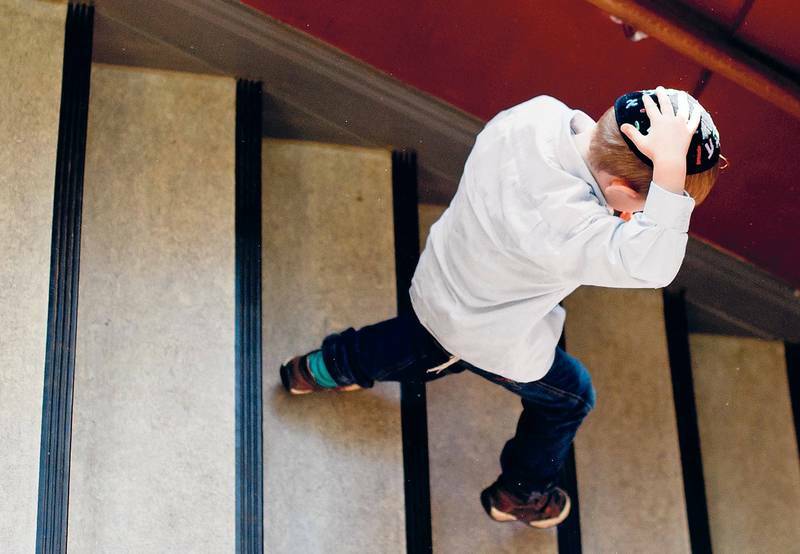Activists have been holding a vigil near Hamburg Central Station for years, expressing their solidarity with Israel - against anti-Semitism, for peaceful coexistence. However, on September 18, 2021, this commemoration was disrupted by 4 young people. Aram A., a 17-year-old migrant from Berlin with Syrian roots, hit a 60-year-old man. The victim's nose and cheek bones were broken, as well as his glasses, as a result of which he became blind in one eye.
During the attack, the perpetrator shouted for "free Palestine" and loudly insulted the victim's religion and mother. The victim lay in his mother's arms in his own blood until the ambulance arrived.
The victim can only distinguish between light and dark with the injured eye. “If it's particularly bright, I have to wear sunglasses because my pupils don't close anymore. If I look directly at the sun, I feel great pain. The doctors say it will never get better," he reported on his condition.
Assessment of the case from a criminal law point of view
First-degree defendant Aram A. was sentenced to 16 months in the first instance and 2 years in the second instance for serious bodily injury. His younger brother was sentenced to 20 hours of community service for violating the rules.
In the case of a suspended prison sentence, the court imposes a prison sentence, but suspends its execution for a probationary period. This can be done if, primarily in view of the personal circumstances of the offender, it can be thoroughly assumed that the purpose of the punishment can be achieved even without its execution.
According to Section 223 (1) of the German Penal Code (Strafgesetzbuch, hereinafter: StGb.), anyone who physically abuses another person or harms their health can be punished with imprisonment not exceeding five years or a fine.
According to Section 46 (2) of the StGB, the perpetrator's motives and goals, especially racist, xenophobic, anti-Semitic, gender-based, anti-sexual or other inhumane motives, are grounds for special consideration. According to all of this, the two-year prison sentence can be considered proportionate, although it can be said to be rather light because of the permanent disability.
It should be noted that the Hungarian Civil Code recognizes violence against a member of the community as a sui generis crime. Section 216 (1) according to who, due to belonging or perceived belonging to another national, ethnic, racial or religious group or to certain groups of the population, especially because of their disability, gender identity, or sexual orientation, exhibits defiantly anti-community behavior that is capable of causing alarm in the members of the given group is punishable by imprisonment for up to three years.
Returning to the German criminal case, the victim demanded compensation, and the regional court awarded 100,000 euros. The judgment is not yet final, an appeal can be made to the higher regional court, but the chance of a successful appeal - and thus the chance of reducing the compensation - is extremely low. The victim is satisfied with the sentence, but knows that the young offender can hardly pay at the moment.
Anti-Semitic attacks in Germany and Western Europe in previous years
Since the massacre of the terror group Hamas in Israel on October 7, 2023, 2,249 anti-Semitic crimes have occurred in Germany, Felix Klein, the German Federal Government Commissioner for the fight against anti-Semitism, announced this January, citing data from the Federal Criminal Police Office (BKA). A "significant proportion" of the mentioned crimes were not committed immediately after October 7, "but weeks and months later".
According to Klein, 2,300 anti-Semitic crimes were registered in Germany last year, which includes all crimes in which Jews were attacked or intimidated. The federal government commissioner explained that he supports the reform of Section 130 of the StGB on incitement (Volksverhetzung), so that anti-Semitism can be fought more effectively with the help of criminal law.
In 2019, the number of anti-Semitic crimes in Germany reached the highest level since Germany started keeping statistics on it (in 2001) (the number of such acts committed due to religious beliefs increased by almost 28% in 2019). In light of this, the trends in Germany in recent years are worrying. As a reaction of the legislator, with effect from April 3, 2021, anti-Semitic motives were specifically included in the sentencing principles according to § 46 of the StGB - among the reasons for sentencing. Already in 2014, approximately 7,000 French Jews moved to Israel from France - that is, 1% of the entire French Jewish population - which is a record number since the Second World War, which brought the tragedy of the Holocaust. In November 2023, a Jewish woman in her thirties was stabbed in her home in Lyon, while graffiti depicting a swastika was also found on her. The prosecutor's office provided information that the attack may have an "anti-Semitic motive". On February 12, 2024, a 35-year-old Jewish man was stabbed six times in Paris, the attacker made anti-Semitic statements while committing the crime, and the prosecutor's office launched an investigation into attempted murder for religious reasons. Already in the 2010s, the rise of anti-Semitism was a typical trend, 70 percent of French Jews reported in surveys that they were worried about insults or harassment, and 60 percent about physical aggression that could befall them because of their religious-ethnic affiliation.
Both data are much higher than the European average surveys show. According to a recent report from the French Interior Ministry in March, the number of crimes of a "racist nature" jumped 32 percent from 2022 to 2023, and the number of such crimes doubled in the last quarter of 2023, following the October 7 terrorist attack by Hamas and Israel's attack on the militant group. following the war against
The number of anti-Semitic acts quadrupled in one year, the ministry found (436 in 2022, and 1,676 anti-Semitic acts in France in 2023).
Anti-Semitism in Western Europe in the XX. from the end of the 21st century intensified in the 20th century, largely in connection with growing Muslim immigration, and in recent years, negative trends have been repeatedly shown, which are now reinforced by the renewed conflict in the Middle East (however, it is difficult to talk about possible real social causes in mainstream public opinion due to the dominance of political correctness).
Source: Basic Law Blog
Cover image: Illustration / Source: Tagesspiegel













